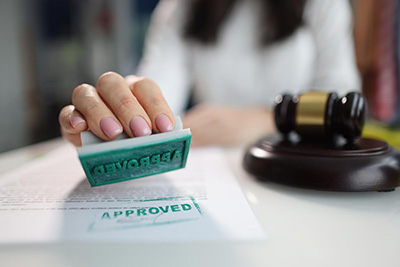Learn when you may be able to file a personal injury lawsuit after a serious burn and the steps to take to maximize your compensation in Columbia
Burn injuries can have devastating physical, emotional, and financial impacts on victims. If you or a loved one has suffered a burn injury in South Carolina, understanding your legal rights and options for compensation through a personal injury lawsuit is crucial.
This article will explore common causes of burn injuries in personal injury claims, identify potential liable parties, explain how liability is determined, and outline the types of compensation available to burn injury victims.
By gaining insight into these aspects, you can take informed steps toward securing the compensation you deserve for your suffering and recovery.
Have questions about your individual situation, or looking for a free case evaluation to determine if you have a claim?
We can help! Contact the knowledgeable burn injury attorneys at Chappell, Chappell and Newman today to get started.
What are the 4 levels of burns?
A burn injury can occur in different ways and have varying degrees of severity:
- First-degree burns are the least serious and only affect the outermost layer of the skin. The skin may have pain, mild redness, and swelling, but this type of burn heals quickly.
- Second-degree burns affect the two topmost layers of the skin. They are characterized by redness, pain, and blisters. It can take longer for these injuries to heal, and there may also be skin loss.
- Third-degree burns are serious burns that affect all the layers of the skin. They can cause permanent injury and disfigurement and leave the skin looking and feeling leathery. Many people who suffer third-degree burns need extensive skin graft surgery.
- Fourth-degree burns are the most severe and are often considered catastrophic injuries. They penetrate all layers of the skin, tissue, muscle, and even bone. These injuries are often fatal, but those who survive require extensive treatment in a hospital burn unit.
It’s important to note that the severity of a burn injury can have a significant impact on recovery time, treatment options, and the potential for long-term complications. Seeking prompt medical evaluation and appropriate treatment is crucial for optimal healing and minimizing the risk of complications.
Did you know?
Each year in the U.S., approximately 30,000 people suffer burns that are serious enough to require treatment in hospitals, according to the American Burn Association. Of those cases, a little less than half, or about 47.6%, require surgical treatment.
What are the common causes of burn injuries in personal injury lawsuits?
Burn injuries can arise from various incidents, many of which may lead to personal injury lawsuits. Some common causes include:
- Motor vehicle accidents. Car crashes, truck collisions, and motorcycle accidents can result in severe burns due to fires, explosions, or contact with hot surfaces. In these cases, liable parties may include the at-fault driver, car manufacturers, maintenance providers, or even an employer in work-related accidents.
- Defective products. Faulty appliances, malfunctioning electronics, or poorly designed products can overheat, ignite, or expose users to hazardous substances, leading to burn injuries. Manufacturers, distributors, and retailers may be held responsible for injuries resulting from defective or poorly designed products through a product liability lawsuit.
- Fires and explosions. Residential or commercial fires, gas leaks, and explosions can cause devastating burn injuries to occupants, bystanders, or emergency responders, leading to lawsuits against property owners, landlords, or manufacturers.
- Scalding injuries. Hot liquids, such as boiling water, coffee, or cooking oil, can cause scalding burns, particularly in children and the elderly. Property owners, businesses, or caregivers may be held responsible when hot liquids cause scald burns.
- Workplace accidents. Industrial settings pose numerous burn risks, including exposure to chemicals, steam, flames, or electrical hazards. Construction workers, factory workers, and electrical technicians are particularly vulnerable. While injured workers typically file a workers’ compensation claim instead of a personal injury lawsuit, employers may be held liable if safety regulations were not followed or if proper protective gear was not provided.
- Chemical burns. Exposure to corrosive chemicals at work, at home, or in public spaces can result in painful chemical burns. These burns can be caused by cleaning products, industrial solvents, or even certain types of batteries. Depending on the situation, employers, manufacturers, or property owners may be liable for exposure to corrosive chemicals that result in burns.
- Electrical burns. Contact with live wires, faulty electrical equipment, or lightning strikes can lead to severe electrical burns, which can damage internal organs and tissues in addition to the skin. Liability for electrical burns can fall on employers, property owners, or manufacturers.
By identifying the cause of the burn injury and the responsible parties, victims can seek appropriate compensation through personal injury lawsuits.
How to navigate the personal injury settlement process in S.C.
A guide to help you get maximum compensation for your personal injury claim.
What should I do immediately after a burn injury?
These are the general steps you should take immediately after getting burned to minimize any damage and protect your health:
- Cool the burn. Run cool (not cold) water over the burn for 10-20 minutes to reduce heat and prevent further damage.
- Remove tight items. Gently remove any tight clothing, jewelry, or accessories from around the burn area before swelling starts.
- Avoid ice and ointments. Do not apply ice or ointments to the burn, as these can cause further damage.
- Protect the burn. Cover the burn with a clean bandage or cloth to protect it from infection.
- Seek medical attention. Seek professional medical help immediately, especially for severe burns, or burns that cover a large area.
- Document the injury. Take photos of the burn and write down details of how the injury occurred, which can be helpful for potential legal action or insurance claims.
Please note that it’s important to seek medical attention after a burn injury, even if you’re not initially in pain. Higher-degree burns can sometimes be painless because they damage nerve endings. Additionally, even minor burns can lead to infections, so it’s always wise to seek treatment to prevent a burn from worsening.
How much compensation can I claim for a burn injury?
The amount and types of compensation you can claim for a burn injury in South Carolina will vary depending on several factors, including:
- Severity of the burn. More severe burns, such as third- and fourth-degree burns, typically result in higher compensation due to increased medical expenses, pain and suffering, and potential long-term disability.
- Lost wages. If your burn injury prevents you from working, you can seek compensation for your lost income, both past and future.
- Pain and suffering. This can include the physical pain, emotional anguish, and decreased quality of life caused by the burn injury.
- Medical expenses. This includes costs for hospital stays, surgeries, medications, physical therapy, and any ongoing care required for the burn injury, which can all be included in compensation.
- Disfigurement and scarring. If the burn injury leaves permanent scars or disfigurement, you may be entitled to additional compensation.
In some cases, punitive damages may also be awarded if the defendant’s conduct was particularly egregious. These damages are meant to punish the negligent party and discourage similar behavior in the future.
It’s important to consult with a personal injury attorney who can assess the specific details of your case and calculate the potential value of your claim. They can help you gather evidence, negotiate with insurance companies, and fight for the maximum compensation you deserve.
How much is your South Carolina personal injury case worth?
Get help estimating the value of your personal injury settlement with our guide to compensation.
How do I know if I have a case against someone who caused my burn injury?
Burn injury cases, like other personal injury claims, are based on the legal concept of negligence. This applies to vehicle accidents, faulty products, and other personal injury situations where someone’s actions directly led to your burns.
For a successful personal injury case, you will need to prove the following elements of negligence:
- Duty of care. The defendant owed you a duty of care to act in a reasonably safe manner to avoid injuring you.
- Breach of duty. The defendant acted negligently by breaching that duty of care.
- Causation. Breaching the duty directly led to your accident or injury.
- Damages. You suffered financial damages as a result of their negligence.
When all of these elements are in place, you likely have grounds for a personal injury case.
What is the statute of limitations for filing a burn injury lawsuit in South Carolina?
South Carolina’s statute of limitations for filing a burn injury lawsuit is 3 years from the date of the incident. So, in most cases, if you don’t file a claim within 3 years, you won’t be entitled to any compensation.
How can an attorney help with my burn injury claim?
The best way to move forward with a burn injury lawsuit is to retain an experienced personal injury lawyer. They can help you by investigating the accident, identifying the liable party or parties, and gathering evidence to prove their liability.
Your attorney can also handle the negotiations with insurers and fight to get you higher compensation, or even take your case to trial if necessary.
Finally, the right attorney can provide you with valuable advice on how to handle your case and guide you through the legal process to ensure all paperwork is filed before the statute of limitations expires.
Get help from an experienced Columbia burn injury attorney
Burn injuries can have a devastating impact on your life, affecting your physical and emotional well-being, your finances, and your future.
If you or a loved one has suffered a burn injury due to someone else’s negligence in South Carolina, don’t face the challenges alone. The experienced Columbia personal injury attorneys at Chappell, Chappell and Newman are here to help.
With more than 30 years of experience and a proven track record of success in burn injury cases, we have the knowledge, resources, and compassion to guide you through the legal process, fight for your rights, and secure the compensation you need to rebuild your life.
Contact Chappell, Chappell and Newman today for a free consultation and let us help you on the road to recovery.
References
Burn Incidence Fact Sheet – American Burn Association. (n.d.). American Burn Association. https://ameriburn.org/resources/burn-incidence-fact-sheet/


